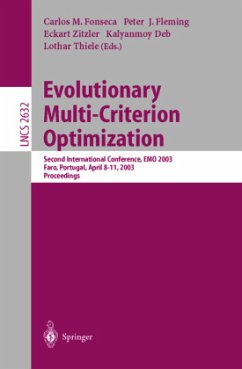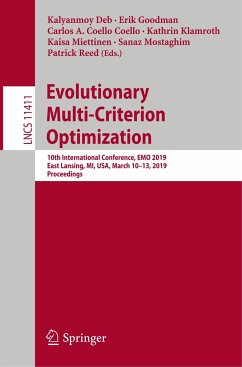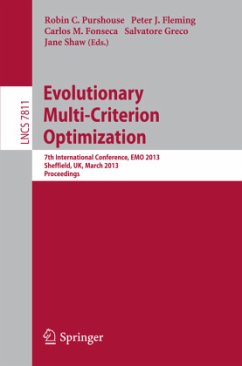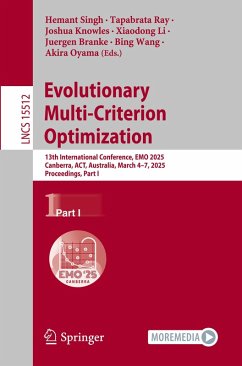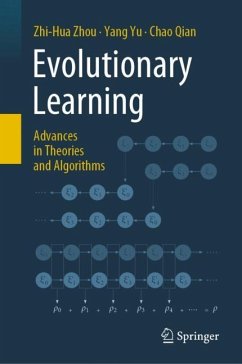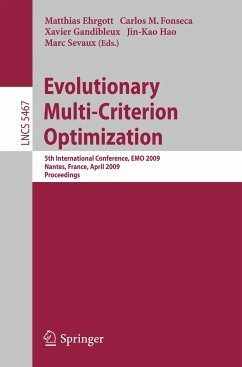
Evolutionary Multi-Criterion Optimization
9th International Conference, EMO 2017, Münster, Germany, March 19-22, 2017, Proceedings
Herausgegeben: Trautmann, Heike; Rudolph, Günter; Klamroth, Kathrin; Schütze, Oliver; Wiecek, Margaret; Jin, Yaochu; Grimme, Christian

PAYBACK Punkte
20 °P sammeln!
This book constitutes the refereed proceedings of the 9th International Conference on Evolutionary Multi-Criterion Optimization, EMO 2017 held in Münster, Germany in March 2017. The 33 revised full papers presented together with 13 poster presentations were carefully reviewed and selected from 72 submissions. The EMO 2017 aims to discuss all aspects of EMO development and deployment, including theoretical foundations; constraint handling techniques; preference handling techniques; handling of continuous, combinatorial or mixed-integer problems; local search techniques; hybrid approaches; sto...
This book constitutes the refereed proceedings of the 9th International Conference on Evolutionary Multi-Criterion Optimization, EMO 2017 held in Münster, Germany in March 2017.
The 33 revised full papers presented together with 13 poster presentations were carefully reviewed and selected from 72 submissions. The EMO 2017 aims to discuss all aspects of EMO development and deployment, including theoretical foundations; constraint handling techniques; preference handling techniques; handling of continuous, combinatorial or mixed-integer problems; local search techniques; hybrid approaches; stopping criteria; parallel EMO models; performance evaluation; test functions and benchmark problems; algorithm selection approaches; many-objective optimization; large scale optimization; real-world applications; EMO algorithm implementations.
The 33 revised full papers presented together with 13 poster presentations were carefully reviewed and selected from 72 submissions. The EMO 2017 aims to discuss all aspects of EMO development and deployment, including theoretical foundations; constraint handling techniques; preference handling techniques; handling of continuous, combinatorial or mixed-integer problems; local search techniques; hybrid approaches; stopping criteria; parallel EMO models; performance evaluation; test functions and benchmark problems; algorithm selection approaches; many-objective optimization; large scale optimization; real-world applications; EMO algorithm implementations.



